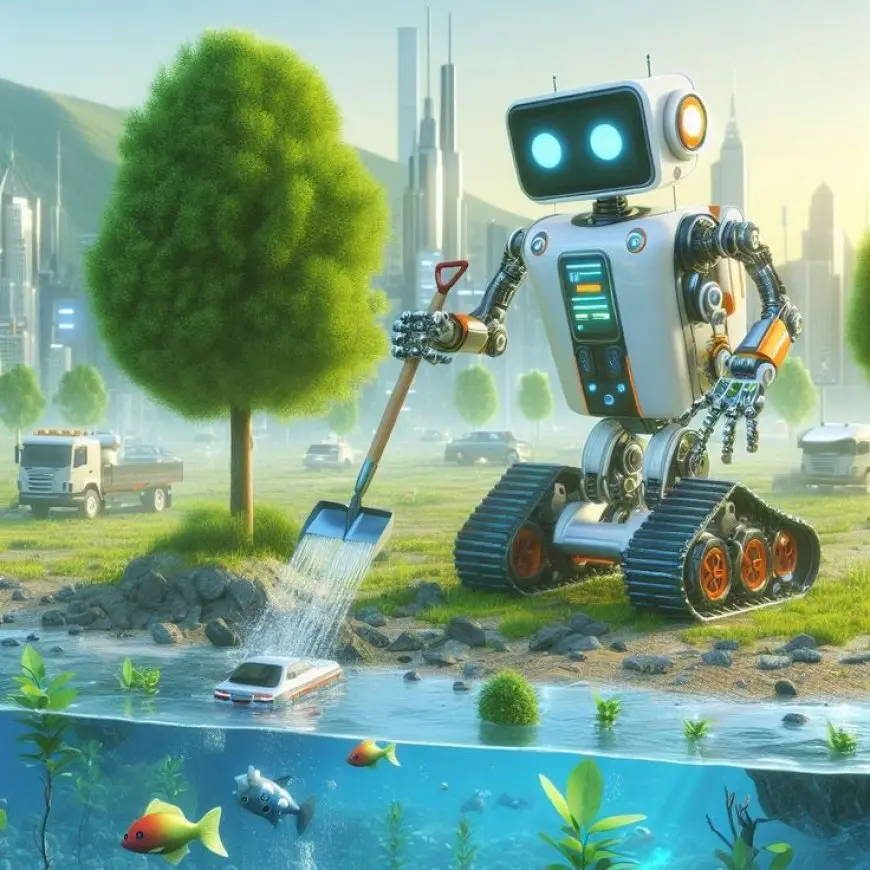"The Role of Technology in Fighting Climate Change"
"The Role of Technology in Fighting Climate Change"

Technology has become a critical ally in the global fight against climate change, offering innovative solutions to one of humanity’s most pressing challenges. As the consequences of climate change become more evident, the need for effective and scalable responses grows. Technology is enabling us to mitigate greenhouse gas emissions, adapt to changing environmental conditions, and build more sustainable systems for energy, transportation, and industry. While technological advancements alone cannot solve the climate crisis, they are essential tools in creating a sustainable future.
Renewable Energy Technologies
One of the most significant contributions of technology in combating climate change is the development of renewable energy solutions. Solar panels, wind turbines, and hydropower systems are transforming how energy is produced, moving away from fossil fuels toward cleaner, more sustainable sources. Advances in battery storage technology are further enhancing the efficiency and reliability of renewable energy, enabling excess energy to be stored and used during periods of low production. These innovations are making renewable energy more accessible and cost-effective, encouraging widespread adoption.
Energy Efficiency and Smart Grids
Improving energy efficiency is another way technology is reducing the carbon footprint of industries and households. Smart grids, for example, use digital technology to monitor and optimize energy distribution. These systems ensure that energy is used more efficiently, reducing waste and lowering emissions. Smart appliances, lighting, and building management systems also contribute by adjusting energy consumption based on real-time data. By integrating these technologies, societies can significantly reduce their overall energy demand.
Carbon Capture and Storage (CCS)
Carbon capture and storage technologies offer a way to directly combat emissions by capturing carbon dioxide from industrial processes and storing it underground. These systems prevent CO₂ from entering the atmosphere and contribute to reducing the overall concentration of greenhouse gases. Additionally, direct air capture technologies, which remove CO₂ directly from the atmosphere, are emerging as a promising solution to mitigate existing emissions.
Sustainable Agriculture and Food Production
Technology is also playing a vital role in transforming agriculture, one of the largest contributors to greenhouse gas emissions. Precision farming, powered by drones, sensors, and AI, enables farmers to use water, fertilizers, and pesticides more efficiently, reducing their environmental impact. Vertical farming and hydroponic systems offer innovative ways to grow crops in urban environments, using less land and water. Meanwhile, advancements in lab-grown meat and plant-based protein alternatives are reducing the environmental footprint of food production.
Green Transportation Technologies
The transportation sector is undergoing a revolution with the rise of electric vehicles (EVs), which significantly reduce emissions compared to traditional combustion engines. Advances in battery technology are improving the range and affordability of EVs, encouraging their adoption. Public transportation systems are also integrating green technologies, such as electric buses and trains powered by renewable energy. Additionally, developments in hydrogen fuel cells and biofuels are providing alternative solutions for long-distance and heavy-duty transportation.
Artificial Intelligence and Data Analysis
Artificial intelligence (AI) is a powerful tool for combating climate change, enabling more accurate predictions and efficient solutions. AI algorithms can analyze vast amounts of data to identify trends, optimize resource use, and predict the impact of climate policies. For example, AI is used to model the effects of deforestation, monitor carbon emissions, and improve energy efficiency in industrial processes. By providing actionable insights, AI helps governments, businesses, and individuals make more informed decisions.
Circular Economy and Waste Management
Technology is driving the shift toward a circular economy, where resources are reused and recycled rather than discarded. Innovations in recycling technology are making it easier to process complex materials, such as electronic waste and plastics. Digital platforms are also facilitating the sharing and repurposing of goods, reducing the demand for new production. These advancements not only decrease waste but also conserve resources and reduce emissions associated with manufacturing.
Climate Adaptation Technologies
In addition to mitigation, technology is helping societies adapt to the impacts of climate change. Early warning systems for extreme weather events, powered by advanced sensors and satellite data, are saving lives and reducing economic losses. Coastal cities are using engineering innovations to build resilient infrastructure that can withstand rising sea levels. Smart irrigation systems and drought-resistant crops are helping agriculture adapt to changing rainfall patterns, ensuring food security in a warming world.
Challenges and Ethical Considerations
While technology offers immense potential, it also comes with challenges. The production and disposal of high-tech equipment can contribute to environmental degradation if not managed responsibly. Additionally, the deployment of new technologies requires significant investment and global cooperation. Ethical considerations, such as ensuring equitable access to green technologies and protecting the rights of vulnerable communities, must also be addressed.
The role of technology in fighting climate change is both transformative and indispensable. By harnessing innovations in renewable energy, AI, sustainable agriculture, and green transportation, we can significantly reduce emissions and build a more resilient future. However, technology alone is not enough. It must be combined with strong policies, global collaboration, and individual commitment to create lasting change. With the right balance of innovation and action, technology can be a cornerstone of the fight against climate change, empowering us to protect our planet for future generations.







